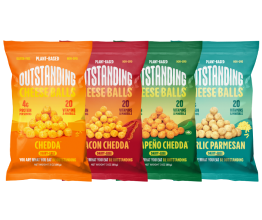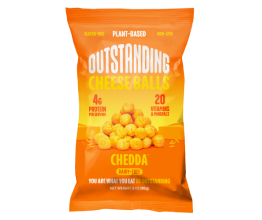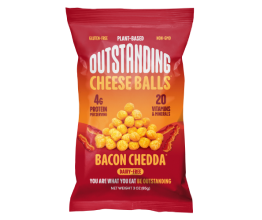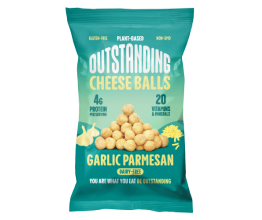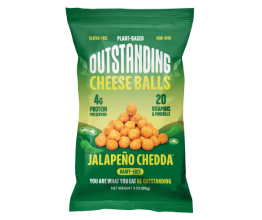Vitamin Tips: Is Vitamin K Potassium?
It can be challenging to eat a healthy diet that covers all the nutritional bases, but the best way to get there is by knowing exactly what your diet needs. After all, if you don’t know what you need in your diet, how will you pick the right foods to keep your diet balanced? The worst part is that lots of vitamins and minerals have similar names, making it confusing to know exactly what you’re getting. This is certainly the case with vitamin K and potassium.
You may remember that potassium also goes by the symbol K on the periodic table, but that doesn’t mean that vitamin K and potassium are the same things. In fact, they are two very different compounds that are both important to your nutritional health. Today, we will clear up all the confusion surrounding these two components and give you some pointers on how to squeeze them into your diet (spoiler alert: it’s going to be yummy).
What Is Potassium?
Has anyone ever told you to eat a banana to help with muscle soreness? That’s because bananas are high in potassium. Potassium is the third most abundant mineral in the entire human body. Potassium is a powerful electrolyte that helps your body regulate fluid. It is also responsible for sending nerve signals to help regulate muscle contractions—hence why it is good for sore muscles.
Since potassium helps with fluid regulation, much like sodium, it is important to incorporate a good amount of potassium into your diet so that you can stay hydrated. Having enough potassium in your diet can also help promote healthy nerve function. Such nerves deliver messages to help regulate the contraction of muscles, your heartbeat, and your reflexes. If you don’t have enough potassium, then you could experience muscle weakness or possibly an irregular heartbeat.
There are several benefits to having a proper amount of potassium in your diet. A potassium-rich diet may help reduce blood pressure. Some studies even suggest that it may lower your risk of strokes. In other words, your body can do some pretty amazing things with potassium, so you should eat lots of potassium-rich fruits and vegetables.
What Is Vitamin K?
Vitamin K is often confused with potassium. It is also a key nutrient for your body, but it is not the same thing as potassium despite potassium being the letter K on the periodic table. Vitamin K is not a mineral but a vitamin that is essential for your body.
Vitamin K is actually a group of two different compounds: vitamin K1 and vitamin K2. Vitamin K1 is sourced from plant-based foods like dark leafy green vegetables. This is the most common type of vitamin K in the human diet. Vitamin K2, on the other hand, is sourced mainly from animals or fermented plant foods.
The human body needs vitamin K to produce the proteins necessary for blood clotting and healthy bone production. Our bodies do produce a tiny bit of vitamin K in our gut, but most of the vitamin K we need comes from food. There are lots of tasty foods that are rich in vitamin K—but more on that later.
Comparing Vitamin K And Potassium
Okay, now you know the basics about potassium and vitamin K, but let’s compare the two side by side for the sake of understanding.
The biggest glaring difference between the two is that potassium is a mineral, and vitamin K is a vitamin. Both of these compounds come in the form of food and supplements, but vitamin K is also produced in the gut. Vitamin K is used by the body to help with blood clotting and bones, while potassium is an electrolyte that helps your body regulate fluids. Both vitamin K and potassium are needed as part of a well-rounded diet.
How To Incorporate More Potassium Into Your Diet
Now that you know how important potassium is for the body, it is time to explore all of the tasty ways that you can boost your potassium intake. Who knows? You may already eat a lot of these yummy foods.
Each day you should be eating approximately 4,700 milligrams of potassium. You don’t need to calculate your intake down to the dot but use this approximate daily value as a rough guide. The following foods are a great source of potassium:
Potassium-Rich Fruits
- Bananas
- Cantaloupe
- Honeydew
- Grapefruit
- Apricots
- Prune juice
- Tomato juice
- Orange Juice
Potassium-Rich Vegetables
- Zucchini
- Pumpkin
- Cucumber
- Peas
- Mushrooms
- Sweet potato
- Potato
- Cooked spinach
- Cooked broccoli
- Leafy Greens
Potassium-Rich Beans
- Lima beans
- Pinto beans
- Kidney beans
- Soybeans
- Lentils
Other Potassium-Rich Foods
- Brown rice
- Wild rice
- Molasses
- Nuts
- Bran cereal
- Whole-wheat bread
How To Incorporate More Vitamin K Into Your Diet
Since you get most of your vitamin K from foods, it is good to try and eat as many vitamin K-packed foods as possible. Your daily vitamin K intake should be roughly 120 micrograms a day. Here are some foods that you can get your daily vitamin K fix from:
Fruits High In Vitamin K
- Prunes
- Kiwi
- Avocado
- Blackberries
- Figs
- Pomegranate
- Tomatoes
- Grapes
- Red currants
Vegetables High In Vitamin K
- Cooked mustard greens
- Cooked kale
- Cooked broccoli
- Raw Swiss chard
- Cooked collard greens
- Fresh parsley
- Raw spinach
- Cooked Brussels sprouts
Dairy Products High in Vitamin K
- Hard cheeses
- Soft cheeses
- Jarlsberg cheese
- Edam cheese
- Blue cheese
- Cheddar cheese
- Cream
- Butter
- Whole milk
Healthy Eating Habits
Generally speaking, healthy eating habits come from eating a variety of whole foods. Of course, if you only eat bananas because they are high in potassium, you will have some major nutritional holes in your diet.
If you want to eat healthily, you will need to make sure your diet is well-rounded with vitamins, minerals, proteins, and other nutrients. Avoid junk foods whenever you can, and instead, pick out healthy snacks that support your nutritional goals.
Snack Like You Mean It
One of the easiest ways to reach your nutritional goals is to avoid empty snack foods that don’t offer any nutrition. Your average bag of chips may taste delicious, but the ingredients will leave you hungry moments later no matter how much you eat. Ditch these empty calories and switch to a snack option that can fuel you with healthy ingredients.
This snacking dilemma is precisely why we create plant-based snack foods that taste like junk food but are actually full of protein, vitamins, and minerals. All of the snacks at Outstanding Foods are designed to taste just like the chips you crave without all the nonsense.
Outstanding Puffs Snacks
Try out our tasty and nutritious Outstanding Puffs. These delicious puff-style snacks come in all your favorite flavors. Get wild with our Pizza Partay puffs or chill out with Chill Ranch.
Wanna get cheesy? Then try White Chedda to satisfy your cheese puff cravings. If your tastebuds can handle it, then spice things up with Hella Hot puffs. No matter which flavor you pick, you are in for a nice crunchy snack that’s filled with good nutrients.
Each bag of Outstanding Puffs has both potassium and vitamin K to help you get your daily fill. They are also a rich source of vitamin B12, vitamin D, and calcium. No matter what your dietary preferences are, Outstanding Puffs will fit seamlessly into your diet. They are gluten-free, non-GMO, vegan, soy-free, and have zero trans fats. With 21 grams of protein per bag, you can eat the entire bag without compromising your healthy diet.
Wrap Up
Now you are well-versed in the difference between vitamin K and potassium, why they are individually important, and how to incorporate more of each into your diet. Learning about nutrition is a great way to begin recognizing the importance of a balanced, nutritional diet. So, keep learning and eat your way to a healthier, happier life.
When you don’t meet your nutrition goals for the day, don’t stress! Instead, just reach for a bag of Outstanding Puffs to round out your nutrition for the day. With so many fun flavors to choose from, these puffs will be your new go-to healthy snack option that not only tastes outstanding but makes you feel outstanding too. Snack smarter, not less! Your body and tastebuds will thank you later.
Sources:
What Does Potassium Do for Your Body? A Detailed Review | Healthline
15 Natural Ways To Lower Your Blood Pressure | Medical News Today
